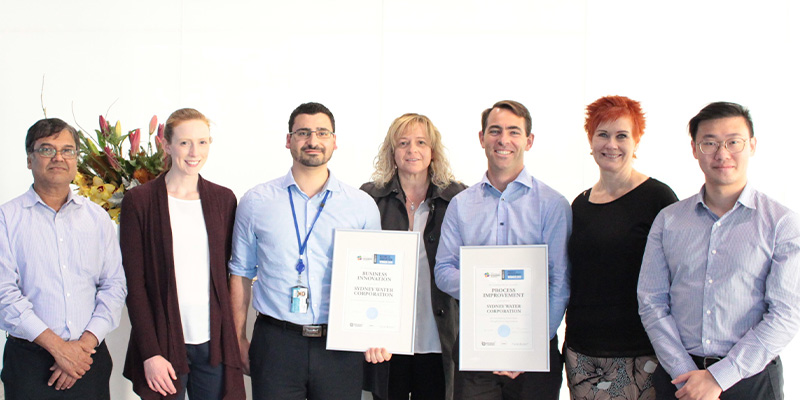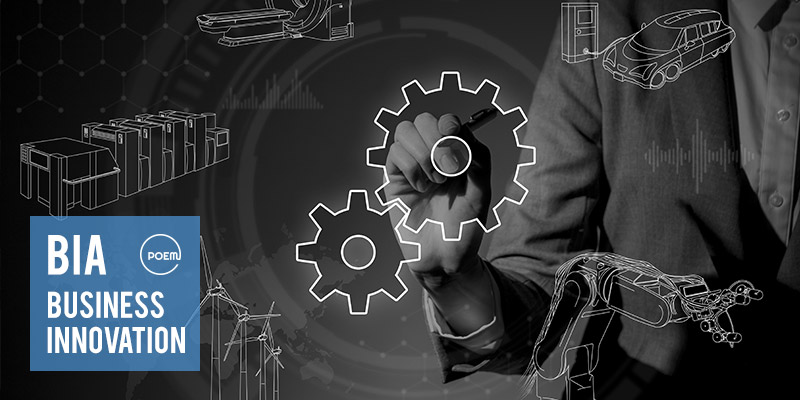Sydney Water Corporation
Sydney Water Corporation has been selected as an ABA100® Winner for Business Innovation in The Australian Business Awards 2019. The Australian Business Award for Business Innovation [BIA] recognises organisations that implement business initiatives which demonstrate innovative solutions for new and existing business needs.
“Sydney Water Corporation is proud to be recognised in the Business Innovation and Process Innovation categories in the ABA100 awards. Our commitment to high performance was at the heart of several business improvement initiatives completed in 2018 that matured infrastructure delivery and organisational leadership capability to serve the current and future water needs of the community.”
Sydney Water Corporation (SWC) is Australia’s largest water and wastewater service provider, supplying water, wastewater, recycled water and some stormwater services to more than five million people in Sydney, the Illawarra and the Blue Mountains – both supplying and reviving water.
SWC is focused on preparing for the future growth of our city to service the extra one million people forecast to live in Sydney in the next ten years.
SWC is a statutory State Owned Corporation, wholly owned by the New South Wales Government, and the sole provider of public water and water waste services to the Sydney community. As a water utility SWC must act in accordance with regulations and the license conditions set by NSW Health and reviewed by IPART every five years.
The Delivery Management (DM) division is a strategic consortium between SWC, Lendlease & John Holland to design and deliver infrastructure projects with 200+ staff and 1500+ ‘active projects across three regions. DM forms part of the Liveable City Solutions group. DM’s vision is to be “the deliverer of choice for Sydney’s Lifestream” and this is the foundation of its business plan.
SWC is committed to building a high-performance culture as an enabler of their Lifestream strategy. To deliver on this strategy, DM recognised an opportunity for process optimisation and business integration in a complex environment to maximise leadership and technical capability to accelerate this journey towards a high-performance culture. This resulted in the ‘Towards Organisational Excellence’ program.
The ‘Enable & Optimise’ initiatives were delivered as part of the broader works in the ‘Towards Organisational Excellence’ program. External consultant, STEP Supply Chain, were engaged from the outset to design and manage the program and manage/contribute to the various projects.
Program governance consisted of a steering group with DM Senior Leaders to ensure the program and its projects met their objectives and for issues escalation. Effective delivery was supported by monthly program status reporting to the Steering Committee, the program strategy and the Communications roadmap.
The program had multiple phases/streams due to its size and complexity. Each project involved research and development and some projects overlapped even across phases. The overall approach was highly adaptive to ensure that quality and stakeholder needs were met.
The ‘Enable & Optimise’ initiatives were focused on optimising the business via innovative new and improved processes.
The desired benefits of the ‘Enable & Optimise’ initiatives aligned with the broader ‘Towards Organisational Excellence Program’ benefits and were:
- Drive a leadership culture of strategic decision making, performance orientation and continuous improvement that was more agile and adaptive
- To increase process standardisation, and the alignment of goals and KPI’s across all DM functions to realise corporate strategy and vision
- To streamline and safeguard project delivery and improve performance across all major measures
- To mature the asset management model
- To create a more united integrated team including leaders, staff, contractors and other stakeholders that follow the same process and collaborate to achieve goals
- To onboard new staff more efficiently and effectively with the new processes/tools.
The initial impact of the optimisation projects was measured by several employee surveys issued shortly after rollout to assess the effectiveness of the change mechanisms as well as the solutions themselves. The immediate results were the deliverables or tangible outputs of the program – all of which were in accordance with the plan.
SWC has demonstrated how to best develop, rollout and perform to a standardised set of innovative optimised end-to-end processes, work as one united team under one management operating system with strong continual improvement and learning mechanisms and as a result streamline infrastructure project delivery and enhance asset management with proven performance results, benefits and value to a diverse array of stakeholders.


